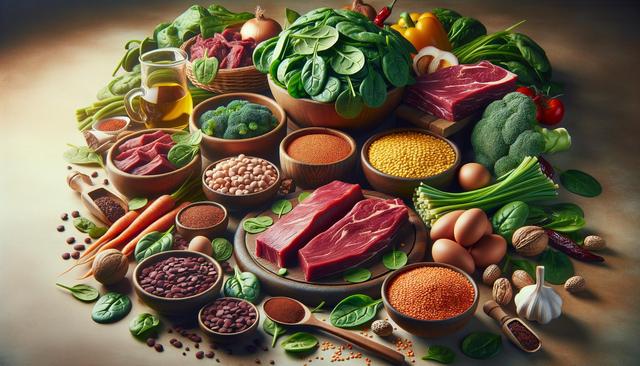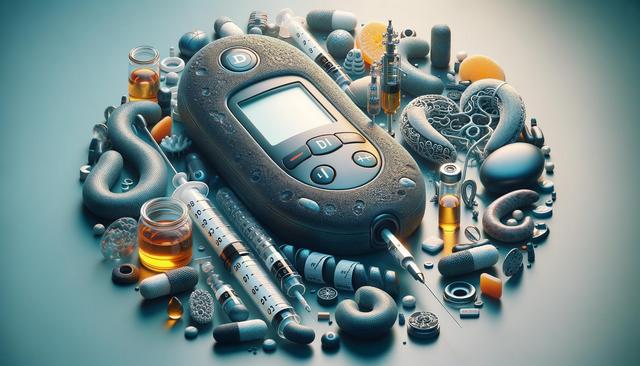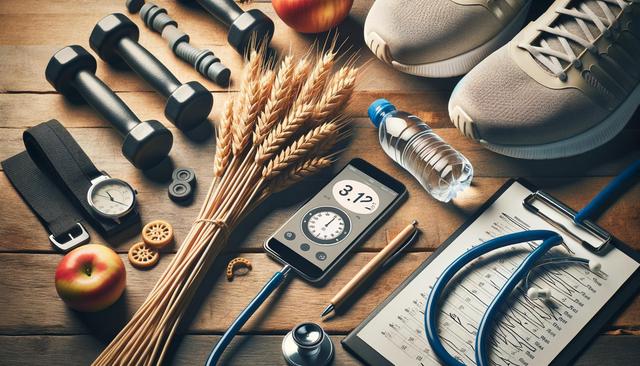Understanding Iron Deficiency and Its Impact
Iron deficiency is one of the most common nutritional deficiencies worldwide, and it can lead to anemia if not addressed. Symptoms such as fatigue, weakness, and shortness of breath often indicate low iron levels. Knowing how diet affects iron absorption in the body is crucial for managing this condition effectively. Iron plays a vital role in producing hemoglobin, the protein in red blood cells that carries oxygen. Without enough iron, your body struggles to get the oxygen it needs, causing a range of symptoms that affect daily life. Addressing iron deficiency through food can provide a sustainable and holistic approach to improving well-being.
The Best Foods to Boost Iron Levels Naturally
Choosing the best foods to boost iron levels naturally involves incorporating both heme and non-heme iron sources into meals. Heme iron, found in animal-based foods, is more easily absorbed by the body, while non-heme iron, found in plant-based sources, can still be highly beneficial when paired with vitamin C-rich foods. Some excellent options include:
- Lean red meats like beef and lamb
- Poultry such as chicken and turkey
- Seafood including tuna and shrimp
- Legumes like lentils, chickpeas, and beans
- Leafy greens such as spinach and kale
- Fortified cereals and whole grains
Integrating these foods regularly can offer strong nutritional support for anemia and help replenish iron stores efficiently.
How Diet Affects Iron Absorption in the Body
While eating iron-rich foods is important, understanding how diet affects iron absorption in the body is equally essential. Several dietary factors can either enhance or inhibit iron uptake. To maximize absorption:
- Pair iron-rich foods with vitamin C sources like oranges, strawberries, or bell peppers.
- Avoid drinking coffee or tea with meals, as tannins can reduce iron absorption.
- Include foods rich in vitamin A and beta-carotene, such as carrots and sweet potatoes, which can help improve iron status.
On the other hand, excessive intake of calcium supplements or high-fiber foods during iron-rich meals may hinder absorption. By making strategic food choices, individuals can better utilize the iron they consume and manage deficiency more effectively.
Iron Rich Meal Ideas for People with Low Levels
Creating balanced meals that focus on iron can be both delicious and beneficial. Here are some iron rich meal ideas for people with low levels:
- Grilled chicken salad with spinach, strawberries, and a citrus vinaigrette
- Beef stir-fry with broccoli, bell peppers, and brown rice
- Lentil soup with carrots, tomatoes, and a squeeze of lemon
- Omelet with kale, mushrooms, and fortified cheese
- Quinoa and black bean stuffed peppers
These meals not only deliver iron but also incorporate other nutrients that support iron absorption. Consulting a professional for dietitian recommended iron sources can further personalize meal plans and ensure nutritional needs are met effectively.
Food Based Strategies for Managing Iron Deficiency Long-Term
Addressing iron deficiency is not just about short-term fixes but developing sustainable, food based strategies for managing iron deficiency over time. Some key practices include:
- Planning meals that consistently include a variety of iron-rich foods
- Monitoring iron levels with healthcare providers to adjust dietary approaches as needed
- Including a mix of animal and plant-based iron sources for a balanced intake
- Staying informed about how different foods interact with iron absorption
Long-term management also involves lifestyle habits such as mindful meal timing and nutrient pairing. By focusing on consistent dietary patterns and nutritional support for anemia, individuals can maintain healthier iron levels and overall vitality.
Conclusion: Supporting Your Health Through Informed Food Choices
Managing iron deficiency through informed food choices is a practical and empowering approach. By understanding how diet affects iron absorption in the body and incorporating the best foods to boost iron levels naturally, individuals can take proactive steps toward better health. From iron rich meal ideas for people with low levels to food based strategies for managing iron deficiency, there are plenty of ways to support your body’s needs. Consulting a professional for dietitian recommended iron sources ensures a personalized and effective plan. With dedication and knowledge, addressing iron deficiency through nutrition becomes a sustainable journey toward improved well-being.




Leave a Reply